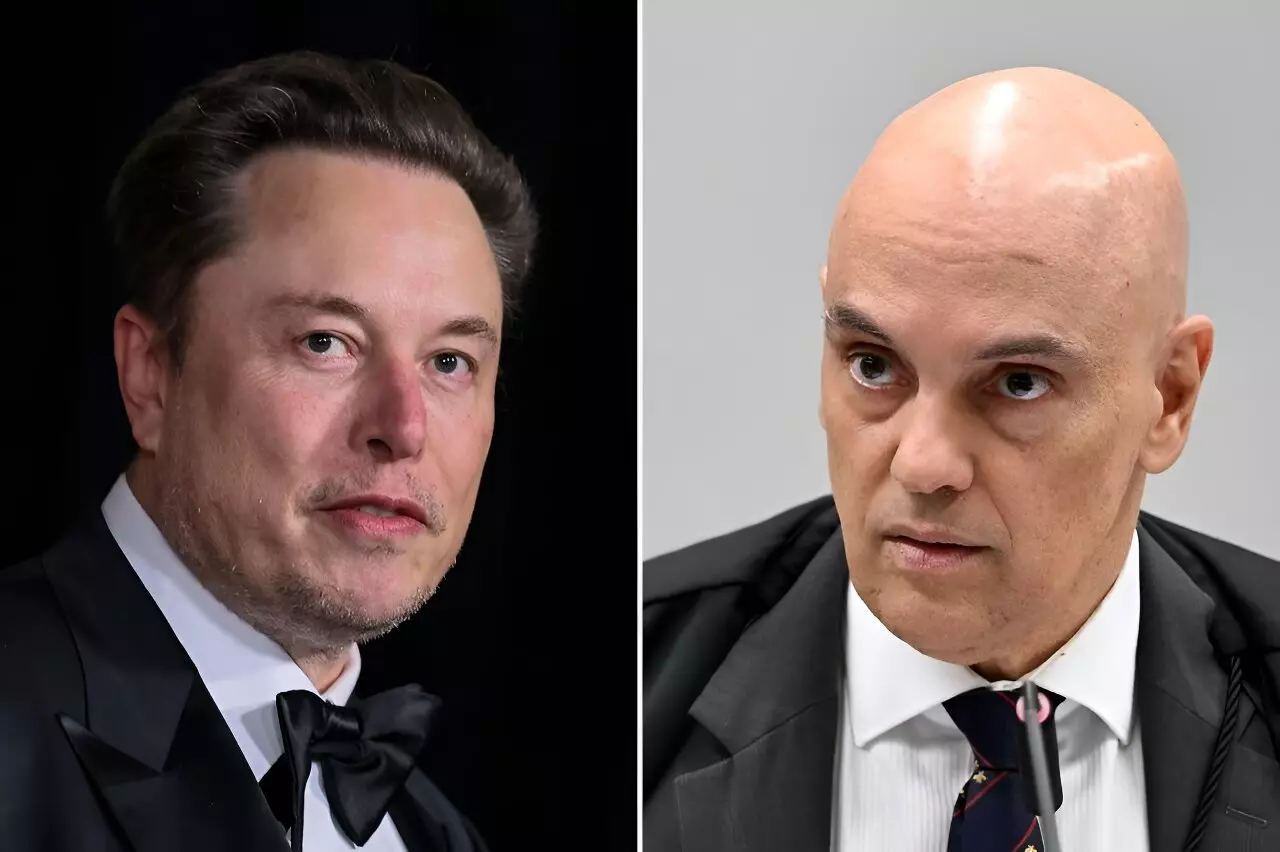Social media giant X (formerly Twitter) has found itself entangled in a legal quagmire in Brazil, where a court ruling requires the company to fulfill specific legal obligations before reestablishing its operations in the country. Despite naming a legal representative—an obligatory first step—the platform remains suspended as the Brazilian Supreme Court, led by Justice Alexandre de Moraes, determined that X has not adequately met outstanding conditions. This situation underscores a broader dialogue about digital platforms’ roles and responsibilities in disseminating information, particularly in a politically charged atmosphere.
The Context of the Suspension
The suspension of X was catalyzed by accusations that Elon Musk’s platform facilitated the spread of disinformation through numerous right-leaning accounts. Tensions escalated when Musk resisted an order to remove these accounts, prompting Justice Moraes to take drastic measures to control the flow of potentially harmful content during a period of significant political unrest in Brazil. The platform, with a user base of over 22 million in the country, has become a focal point for discussions surrounding social media regulation and governance, especially amid rising concerns about fake news’ impact on democratic processes.
Compounding the situation, X faces hefty fines totaling over five million reals (approximately $913,000) for disregarding the suspension order. The company contended that its brief reappearance online was a technical issue related to a network switch, rather than an intentional flouting of legal directives. However, Justice Moraes rebuked this defense, labeling their actions as “malicious, illicit, and persistent.” Such a statement highlights the court’s rigid stance against what it perceives as disrespect towards judicial authority and the rule of law.
Elon Musk and the Challenges of Governance
Elon Musk’s direct confrontations with the Brazilian judiciary add another layer to this saga. Referring to Moraes as an “evil dictator,” Musk has invoked a character from popular culture—Voldemort—to draw parallels between authoritarianism and judicial oversight of digital platforms. This rhetoric resonates with his supporters but further polarizes the societal debate around freedom of speech versus responsible governance. The clash is emblematic of a larger global issue where tech leaders are often at odds with government regulations aimed at curbing the spread of misinformation.
The legal proceedings have not only been a point of contention for Musk and the courts but have also ignited fierce political debate within Brazil. The leftist supporters of President Luiz Inácio Lula da Silva appear to welcome the suspension as a necessary measure against misinformation, while right-wing factions—led by former president Jair Bolsonaro—have denounced it as unconstitutional censorship. This division reflects the deeply ingrained ideological rifts in Brazilian society, suggesting that social media platforms like X may serve as battlegrounds for larger ideological conflicts.
The Road Ahead
As X navigates the precarious legal landscape in Brazil, the implications of this confrontation extend beyond the courtroom. The outcome of this conflict may establish critical precedents for how tech companies operate under the scrutiny of national laws. As the clock ticks on the five-day deadline for X to submit the required documentation, all eyes will be strategic on how this prominent social media platform chooses to maneuver through the legal maelstrom ahead. The situation is not only a litmus test for corporate accountability but also for the relationship between free speech and the responsibilities of digital platforms in safeguarding democratic processes.


Leave a Reply